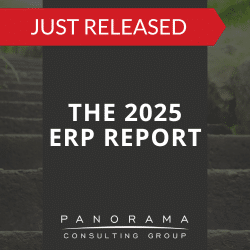Whether you’re reading a business blog or attending a tech conference, you likely hear the same phrases over and over. Terms like “digital transformation” and “big data” are becoming as common as butter on toast.
Many business leaders are dismissing these phrases as mere noise, rather than drivers of business success.
Today, we’re exploring some of the most overused business phrases and tech buzzwords. If you’re an executive or IT professional aiming to modernize your processes and systems, keep reading to learn why these annoying business terms actually have enduring importance.
Seven Overused Tech Buzzwords and Business Terms
1. Digital Transformation
 
Why People Find It Annoying
“Digital transformation” is often perceived as a catch-all term that lacks specificity. Critics argue that it’s become a vague buzzword used to describe any kind of technological update. This includes everything from minor IT upgrades to comprehensive overhauls.
Essentially, the overuse of this phrase in boardroom meetings and at industry conferences can make it sound like a marketing gimmick rather than a strategic initiative.
 
Why It Actually Matters
- Business Model Innovation: Digital transformation is about rethinking traditional business models to leverage new and advanced technologies. This often leads to the creation of new revenue streams and business opportunities.
- Operational Efficiency: By integrating advanced technologies, such as artificial intelligence (AI), machine learning, and the Internet of Things (IoT), organizations can streamline operations, reduce costs, and improve productivity.
- Customer Experience: Enhancing the customer journey through personalized interactions, data-driven insights, and seamless digital interfaces is a core component of digital transformation.
2025 Clash of the Titans
SAP, Oracle, Microsoft, and Infor each have a variety of systems that can support data-driven decision-making. We surveyed customers of these four vendors to find out what their selection and implementation process was like.
2. Leveraging Data
 
Why People Find It Annoying
This phrase is often perceived as stating the obvious. In today’s data-rich environment, businesses are naturally expected to use data, so mentioning it explicitly can come across as an attempt to sound sophisticated without saying much.
Many executives feel bombarded with the idea that they should leverage data without being given concrete steps or understanding the full potential it holds.
 
Why It Actually Matters
- Data-Driven Decisions: Utilizing data analytics enables businesses to make evidence-based decisions, reducing the risk of errors and increasing the likelihood of business success.
- Predictive Insights: Putting reliable, real-time data into a predictive model allows organizations to anticipate market trends, customer behavior, and operational bottlenecks.
- Performance Measurement: Data helps in tracking performance against key metrics, facilitating continuous improvement and accountability.
3. Cloud Computing
For example, one of our recent biotechnology clients was seeking a cloud-based, industry-compliant software system to enable data-driven manufacturing. Our ERP selection consultants helped the company select an integrated system that enabled it to move from descriptive to predictive and prescriptive analytics. This enabled the manufacturer to increase their operational efficiency and improve their decision-making.
 
Why People Find It Annoying
The term “cloud computing” can be irksome because it’s often used without a clear explanation of what it entails. Many feel it’s a buzzword used to sound modern and tech-savvy.
Is a superficial understanding of this tech buzzword all you can hope for, or does it have more substance?
 
Why It Actually Matters
- Scalability: Cloud solutions offer unparalleled scalability, allowing businesses to adjust resources according to demand without significant capital investment.
- Cost Efficiency: By shifting to cloud services, companies can reduce the costs associated with maintaining physical servers and data centers.
- Innovation and Flexibility: Cloud platforms provide access to the latest technologies, enabling rapid deployment of new applications and services.
4. The Internet of Things (IoT)
 
Why People Find It Annoying
The term “IoT” is often met with skepticism. Its overuse in tech discussions and sales pitches without concrete examples can make it sound like a concept that’s perpetually “coming soon.”. Many perceive it as just another trend that will fade away before achieving its full potential.
 
Why It Actually Matters
- Enhanced Customer Experience: IoT can provide real-time data that enhances product functionality and customer satisfaction.
- Data Collection: IoT devices collect valuable data that can be analyzed to improve products and services continuously.
- Operational Efficiency: IoT devices can monitor and optimize manufacturing processes, reducing downtime and maintenance costs.
5. Big Data
For instance, our ERP implementation consultants recently worked with a healthcare manufacturing company that was struggling with data integration issues and a lack of business intelligence. We helped the company select a modern ERP system to improve decision-making through real-time data and global visibility.
 
Why People Find It Annoying
This term is often used to refer to vast amounts of data without explaining the actionable insights that can be derived from it. This can come across as intimidating, and businesses may feel pressured to adopt big data strategies without clear guidance on how to do so effectively..
 
Why It Actually Matters
- Comprehensive Insights: Big data analytics provide a holistic view of business operations, customer behaviors, and market trends.
- Personalization: Businesses can use big data to create personalized experiences for customers, enhancing loyalty and satisfaction.
- Operational Efficiency: Analyzing large datasets helps in identifying inefficiencies and opportunities for cost savings.
6. Artificial Intelligence (AI)
 
Why People Find It Annoying
“AI” is often viewed as an overused tech buzzword because it’s used to describe a broad range of technologies, some of which are still in their infancy. The hype around AI can lead to unrealistic expectations about its capabilities and timeline for deployment.
Furthermore, when used in a sales pitch, this term can make a basic software system seem more sophisticated than it really is.
 
Why It Actually Matters
- Automation: AI can automate routine tasks, freeing up employees to focus on higher-value activities.
- Enhanced Decision-Making: AI algorithms analyze large volumes of data to provide actionable insights, supporting better decision-making.
- Customer Interaction: AI-powered chatbots and virtual assistants improve customer service by providing instant responses and personalized interactions.
7. Blockchain
For example, healthcare organizations can use blockchain to create a secure and accessible way to manage patient records. At the same time, logistics companies can use blockchain to track shipments in real-time, ensuring transparency and reducing fraud.
 
Why People Find It Annoying
This corporate buzzword and the technical jargon surrounding it can be off-putting as it sounds like complex and inaccessible technology.
In addition, there are misunderstandings about its broader applications. For example, its applications in smart contracts and decentralized finance are not as widely discussed.
 
Why It Actually Matters
- Transparency: Blockchain provides a transparent and immutable record of transactions, enhancing trust and accountability.
- Security: The decentralized nature of blockchain makes it highly secure, reducing the risk of fraud and data breaches.
- Efficiency: Blockchain can streamline processes such as supply chain management and contract execution through smart contracts.
Passing Trend or Sustainable Business Practice?
While business jargon can make you want to bang your head against the wall, it’s a language that can easily be used for good rather than evil. Properly using this terminology in communications with colleagues can help you make smart technology purchases and effective process improvements.
Our business software consultants can help you understand the true meaning of business buzzwords and tech jargon. Contact us below to learn about our ERP selection services, our technology assessment services, and more.













